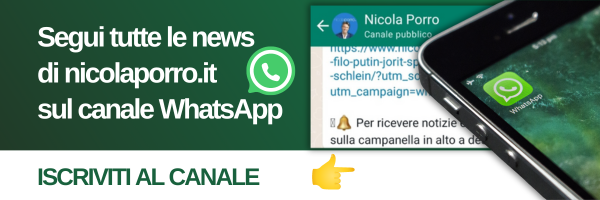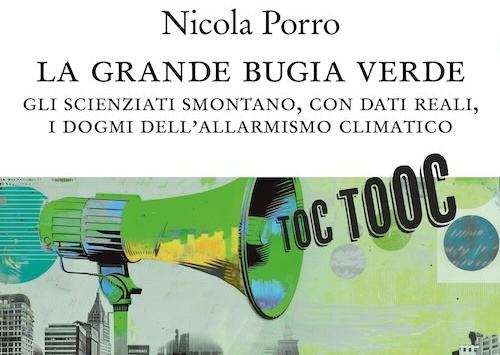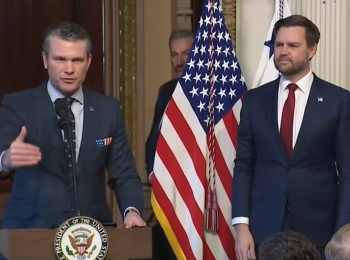Le performance militari russe nelle guerre precedenti l’Operazione Barbarossa erano state solitamente notate per l’incompetenza e la corruzione, guerre in cui la Russia aveva invaso altri Paesi. È solo quando la stessa Russia è stata invasa in tempi moderni (da Napoleone e Hitler) che la Russia (e l’Ucraina) si è comportata in modo ammirevole. In questi casi di guerra difensiva, le truppe erano molto motivate
“It is very queer that the unhappiness in the world is so often brought on by small men”
Erich Remarque
Molte sorprese
The war began a year ago. Russia’s attack on Ukraine brought many surprises. Foremost was how miserably bad the Russian military has performed and how determined has been the Ukrainian defense, since Ukrainians have always been seen as the more laid-back people while the Russians have been seen as more ruthless (the training of Russian soldiers is sadistic).
Russian reputation as ferocious fighters began in the Second World War. Indeed, Ukraine was written off by many people in the very beginning of the war in the West and, undoubtedly, Putin shared this view of Ukrainians being pushovers.
However, in retrospect, this should not have come as a surprise to a student of history. Russian military performance in wars prior to Operation Barbarossa had usually been noted for being incompetent and corrupt, and these wars occurred usually when Russia invaded other countries.
It is when Russia/Ukraine itself was invaded in modern times (Napoleon, Hitler) that Russia acquitted itself admirably. In those instances, the troops were highly motivated.
Un male peggiore
In the past four centuries, Ukraine as a political entity has been nothing other than a footnote of history. It briefly gained independence right after WWI, only to serve as the battlefield between the Whites, the Reds, and Makhno’s Anarchists, before falling under the Russian heel again.
In the 1930s, millions of Ukrainians starved to death under orders of Stalin so that when the Germans invaded, Ukrainians welcomed them with open arms and the traditional bread and salt. Over a quarter of a million actively helped the Nazis against the Communists; a very similar scenario played in Latvia, Lithuania and Estonia (see the films 1944, Ashes in the Snow and Kruty 1918).
In fact, there are monuments in those countries honoring the participants. Jewish groups in the West are scandalized by that fact, insisting that the Nazis were eviler than the Communists, while the Baltic people insist that the Communists (who had killed tens of thousands of their citizens) were a more dangerous evil than the Nazis – as personally experienced. To a certain degree, the same occurred in Finland.
Russi e ucraini
With the disintegration of the Soviet Union, Ukraine became independent in 1991. Since then, one of Putin’s goals was to reincorporate Ukraine through political/diplomatic machinations and selective poisoning. He also had hopes of reincorporating Belarus, Crimea, Kazakhstan and Estonia into a Russian empire since they all have substantial number of Russians.
Until the 2022 invasion, in spite of Russian annexation of Crimea and support for separatists in Eastern Ukraine, Ukrainians and Russians saw each other as cousins, even though a lot of Russian propaganda attempted to arouse hatred because of friction among Ukrainians who insisted that the Russian language should be excluded. Ukrainians saw Putin as the enemy, not Russians.
Questione di motivazioni
And Ukrainians are not strange foreigners; Russians have always seen them as family, as good people. They have relatives across both borders. It would be like Americans being told to hate Canadians in order to invade Canada. This explains why Russian troops have had low motivation for the war, almost to the point of mutiny.
Inside Russia, the war against Ukraine has not proven to be popular with many, and opposition was evident until repression was imposed. Whether the explosions inside Russia have been carried out by dissidents or by Ukrainian infiltrators remains to be seen. Unfortunately, in the West, the overreaction against individual Russian citizens has often been very unfair.
The other reason for the stiff resistance is that whereas Ukrainians are fighting for their country (a lot of history is being remembered), Russians are not. The deliberate killing of civilians and destruction of nonmilitary “targets” such as infrastructure has not served to demoralize the Ukrainians; quite the contrary, as a study of WWII history could have predicted.
The Kremlin actually believed that their troops would be welcomed as liberators. Instead, they rallied behind their country, with civilians offering information on the enemy, verbally harassing them, and working to create equipment for Ukrainian troops.
And, of course, there is the fact that the Russian troops were lied to and were poorly trained and supplied. Russian command has traditionally seen their soldiers as cannon fodder. Their morale has plummeted.
Il mancato supporto cinese
Aside from the military aspects, another surprise has been the near unanimous worldwide hostility and disgust towards Russia. This repugnance was even voiced by Sweden, Finland and Switzerland. Switzerland!
Putin had hoped for support from China, the West’s actual danger. Both countries had engaged in joint war games and we know for a fact that China’s military, unlike Russia’s, is itching to pulverize America’s military. Some claimed that the Americans had ineptly pushed Russia into China’s arms.
When Putin went to the opening day of the Beijing Olympics, he and Xi issued a joint declaration stating that both countries oppose the expansion of Nato; China also asked Putin to postpone the invasion of Ukraine until after the Olympics. Yet, in the end, China’s unqualified support did not come.
Le previsioni della vigilia
January 2022 saw a series of American media articles warning that Russia was going to invade that country. The following articles were typical: “U.S. accuses Russia of planning to film false attack as pretext for Ukraine invasion”, “How a Russian invasion of Ukraine might go down”, “The United States Doesn’t Have To Go To War With Russia To Prevent A Russian War With Ukraine”. The vast majority of people dismissed this as typical gibberish from the chattering classes.
Even Ukraine’s President Volodymyr Zelenskyy himself was skeptical of the advanced warnings, and asked for solid evidence that Russia is going to invade his country.
Lo shock dell’invasione
When invasion materialized, it came as a shock to those outside the intelligence community (and even to others within the intelligence community). For the public, that a European country would invade and try to absorb another European country in this day and age, in this century, was seen as an immoral atavism, a deliberate return to a more barbaric period, a time that had been thankfully left behind.
Putin’s attack infuriated millions of people worldwide (even in friendly countries) and this, in turn, surprised the Russians (one Russian officer broke through the media censorship to reveal on Russian television that “the entire world is against us”).
La propaganda russa
Since then, the Kremlin has attempted to turn Western public opinion by first, pointing out the chronic corruption in Ukraine and secondly, by bringing up the Nazi scare knowing full well that a lot of people have a knee-jerk reaction to the mythical “neo-Nazi” threat (the “Nazi” excuse is also useful inside Russia after decades of propaganda).
In this latter, they have shown pictures of Nazi-like insignia. The propaganda has been typically crude and made little impression, unlike pictures of Ukrainian civilians dead, and hospitals and apartment buildings destroyed by the Russians (besides, President Zelinsky is a Jew), although there have been some converts among those who have a Pavlovian reaction to the word “Nazi”.
The third attack has been on Zelensky himself by highlighting the fact that he has banned pro-Russian political parties and churches, and imposed censorship. Some have come to his defense, justifying his actions because of circumstances. Nonetheless, some Westerners (as is inevitably the case) are Putin apologists.
La propaganda ucraina
The Ukrainians, on the other hand, have been masters of propaganda, constantly bringing to the attention of the world the destruction and civilian deaths and suffering. They have shown the captured Russians being allowed to call their families assuring them of being alive while condemning the invasion and the lies of their commanders.
They have posted videos on social media showing destruction of Russian armored vehicles and aircraft – along with background music. Humor has also helped their cause (Westerners have also used humor, even in diplomatic circles).
The Russian invaders are referred to as “orcs” by Ukrainian soldiers. Films have shown farmers with their tractors towing abandoned Russian tanks towards Ukrainian forces. The Russians stole zoo animals from Kherson, including an American racoon; a “Saving Private Racoon” meme went viral.
When Moskva, a Russian ship, ordered the men on Snake Island to surrender the latter responded, “Russian warship, go fuck yourself”. Stamps were issued showing a soldier at water’s edge giving the finger to a warship in the distance (the stamps sold out immediately and are still in demand). The Moskva was later sunk.
Nuova offensiva russa
Now, after regrouping, rearming, and replanning, Russia is expected to attack once more, employing its usual tactic of mass attacks. Meanwhile, the West is sending Ukraine some of its gee whiz weapons which they hope will help the defense and the inevitable counterattack. We shall see.



